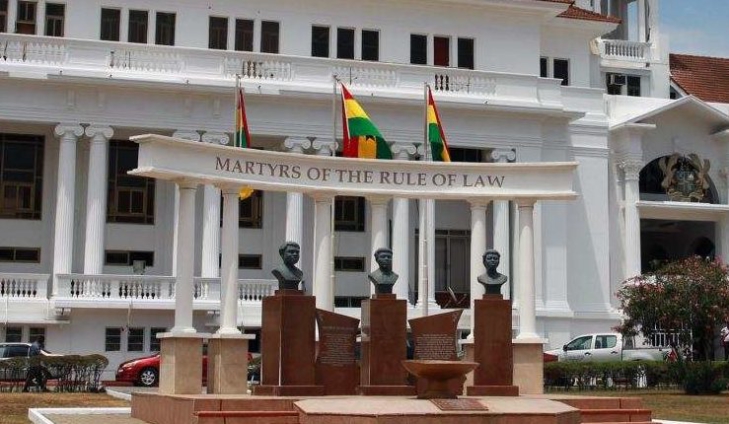Chief Technical Advisor, University of Ghana School of Law’s Democratic Vigilance Project, says the Supreme Court’s judgement gives the sense of a disproportionate duty placed on party agents in electoral processes.
Oliver Barker-Vormawor reacting to the judgement said the consequence could be an increase in election contestations.
“Party agents will refuse to sign the forms presented before them on the basis that it could count against them when an election is contested subsequently in court," he said.
This, he said, would increase election-related tensions in the country in the near future.
Speaking on JoyNews, he said, “I think one of the things that this judgement will give us is that there seems to be a sense of a disproportionate duty placed on party agents. And this was one of the things that was said in the last election and reemphasized in this one as well.
“Now certain people have viewed this as reinforcing the electoral process and enhancing it, one, by making sure that parties are vigilante when contesting the election. But an alternative view to take of this is that it may increase the contestations around the elections and also, the tension that this engenders.
“For instance, it is going to be more and more likely that party agents will refuse to sign the forms presented before them on the basis that it could count against them when an election is contested subsequently. So we may see a rise in those incidences.”
He, however, opined that Ghanaians should be more critical of the Electoral Commission and the manner in which they perform their duty rather than the party agents.
According to him, the Electoral Commission serves a constitutional duty for which they are paid from the Consolidated fund, thus reserving sharp criticisms for party agents instead of the constitutionally mandated body does not strike the balance, something he says the Court’s judgement missed.
“But also I worry that we’ll continue to treat the presidential elections as some sort of private contest between two private individuals. And an election petition is not a land litigation or a contractual dispute between two market women, the presidential election is a public matter and also a constitutional duty, and the conduct of that constitutional duty we have confined to a public body which we pay for and we charge their allowances and salaries on the consolidated fund.
“For this reason, our scrutiny of the conduct of the election manager must be much more severe than we tend to do and we reserve that sort of severity or criticism for party agents and I think that this balance that we need to strike I do not think that that was properly struck.”
Latest Stories
-
Mahama launches ‘No Fees Stress’ programme
34 seconds -
Over 19,700 students receive second semester loans – Dr Saajida Shiraz
25 minutes -
AI Collective launches first African Chapter in Ghana to advance inclusive AI development
29 minutes -
Energy Ministry declares Eban-Akoma oil and gas discoveries commercially viable
54 minutes -
Health Minister to register over 16,000 residents under NHIS in Juaboso District
1 hour -
Hairdresser sues SYNLAB Ghana for GH¢10m over false HIV report and deportation
1 hour -
Ghana’s Conviction of Agradaa Sets Legal Precedent for Crackdown on Spiritual Scams
2 hours -
Cardinal Turkson departs for Rome, urges national unity behind President’s vision
2 hours -
NSMQ 2025: St. James Seminary claims Bono-Ahafo zonal title with dominant second round performance
2 hours -
Africa, don’t be fooled by growth statistics: The Zambia 6% ‘Success Story’ is a wake-up call
2 hours -
Health Minister donates 10 motorcycles and 5 incubators to Juaboso District Hospital
2 hours -
Africa Air Badminton Championships kickstart at Laboma Beach in Accra
2 hours -
We will work to leave a legacy in the road sector – Agbodza
2 hours -
Joyce Bawah Mogtari and IMLI Alumni champion Maritime Innovation at Maiden Leadership Day
2 hours -
Dr. Sharon Karbo: A Ghanaian physician leading the charge against cancer and chronic disease
2 hours

